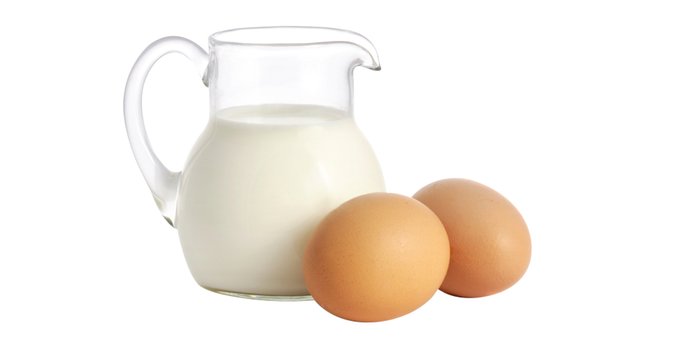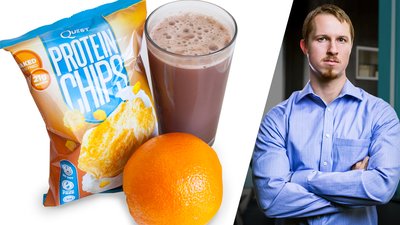It's 6:30 in the evening and you've just finished a wonderful dinner with the family. In all likelihood, this may be the last time you eat until tomorrow. Okay, you might hit the cookie jar before bed, but you might not be thinking about nutrition. You just want a little snack.
But when you're trying to build muscle or lose fat, cookies aren't going to cut it. If you snack like that and then skip breakfast before starting your day, you're making your body go 10—maybe as many as 14-15—hours without protein. Not a good idea. Here's why.
Muscle Building 101
Your body builds new proteins and breaks down old ones 24 hours a day, a process known as protein turnover. The balance of these two processes over time is what determines whether you gain or lose muscle. If you want to build muscle, you need to build new protein. And guess what you need in order to do that? Yep, you need protein.
Having enough protein in your system enables muscle protein synthesis (MPS). MPS is when your body builds muscle (known as the "anabolic" state). Without enough protein, your body experiences muscle protein breakdown (MPB, also known as a "catabolic" state) when your body tears muscle down.

A protein-rich meal and the proper bedtime snack can help keep your body in that muscle-building state. Missed meals, poor protein choices, and a midnight cookie may be keeping your body in a catabolic muscle-loss state.
Muscle Building During Sleep
People used to think that as they slept, their body converted everything they ate right before bed into fat. Not true. A Medicine and Science in Sports and Exercise study found that if we eat protein-rich foods following a workout and before bed, they don't become fat. They are used to increase rates of muscle protein synthesis[1].

When to Eat
But do you actually need a bedtime dose of protein? Remember, your body is constantly building up and breaking down muscle. The key to doing more building up than breaking down is to give your body a steady supply of protein. For the average person, that means eating a protein-rich meal or snack every 3-4 hours.
Of course, I don't recommend setting your alarm to wake you up every 3 hours at night; good sleep is important to good health. But by grabbing a protein-rich snack right before bed, you give your body the fuel it needs to tilt the balance toward muscle creation.
Having said that, don't use this as an excuse to dump extra calories into your day. Your late-night snack should help you reach, not exceed, your daily macro goals. And instead of choosing cookies (or, heaven forbid, junk food), choose snacks big on protein, low in carbs, and low on fats.
What to Eat
If, by chance, bedtime approaches, and you still haven't met your carb or fat macros for the day, feel free to include them here. But protein is the priority. Protein sources such as casein or dairy products (which are mostly casein) are excellent options. Their slow-digesting nature keeps protein flowing into your system to extend muscle building and reduce muscle breakdown while you sleep.

If dairy doesn't sit well with you, it might make sense to add healthy fats (avocado, oils, nut butters) to your bedtime meal, since these fats slow down digestion, too. If you're like me and enjoy a sweet treat before bed (besides cookies, I mean), check out one of our many high-protein dessert recipes to get the job done!
References
- Groen, B., Pennings, B. A. R. T., Beelen, M., Wallis, G. A., Gijsen, A. P., Senden, J. M., & Van Loon, L. J. (2012). Protein ingestion before sleep improves postexercise overnight recovery. Medicine and Science in Sports and Exercise, 44(8), 1560-1569.

